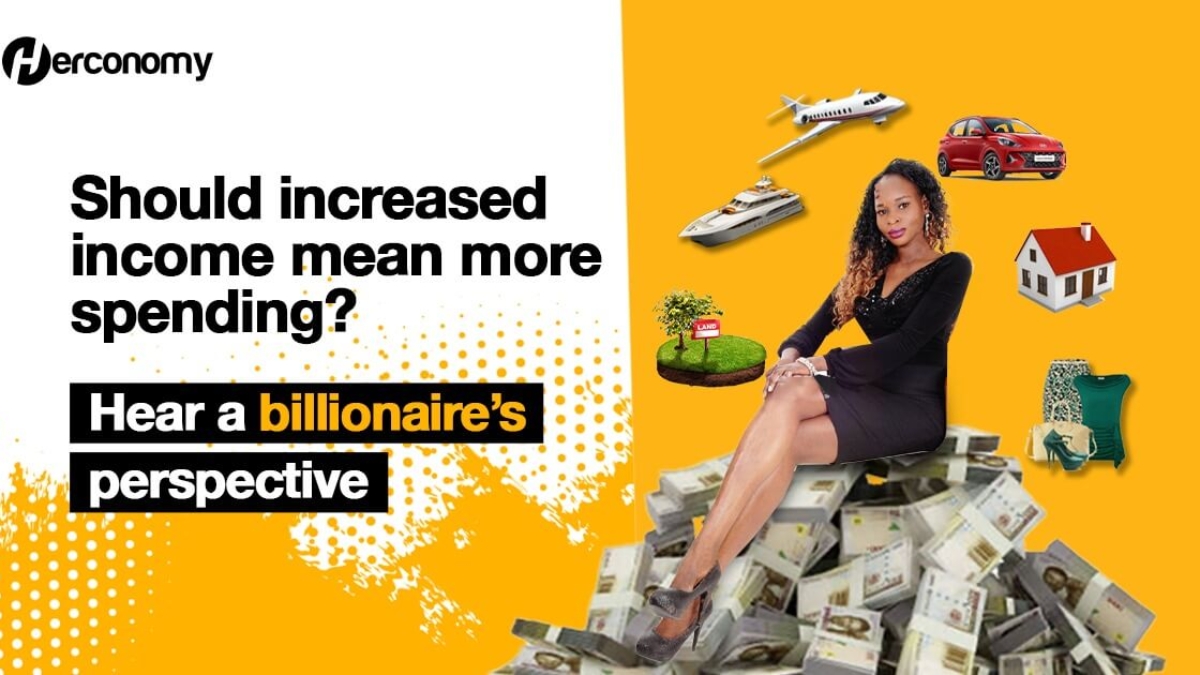Last week, Elon Musk’s X (formerly Twitter) lit up for Nigerians who read a post from Ezra Olubi, one of the nationally honoured cofounders who exited Paystack, an Africa-focused fintech startup. The $200 million exit ranks as one of the highest on the continent, spotlighting Olubi and Shola Akinlade, his partner, as two of the region’s success stories—in terms of both impact and liquidity. In the viral Tweet, Olubi shared that more recently, he became “unbelievably liquid”—a term that has now been framed into a fancy pseudo-prayer and creed.
“God abeg, make me unbelievably liquid” made the rounds on Nigerians’ Twitter accounts as folks chatted about the concept of having so much money that it becomes “unbelievable.” The Tweet made its way to us at Herconomy, and we had quite an exciting time talking about it. For us, though, our excitement was not just about the liquidity, but the overall message of the Tweet. Ezra Olubi essentially said: I witnessed a crazy surge in my income, but left my spending as it is!
“I started this [paying myself a salary every month] over a decade ago, and when I recently became unbelievably liquid, I didn’t spend a dime until I did the math to determine a reasonable yearly budget, then moved that sum to my ‘operations account,’” the Tweet reads in part.
Ezra is not alone in this school of thought. Iyin Aboyeji, ex-cofounder of unicorns Andela and Flutterwave, has shared something similar. “Don’t let your cost of living rise with your income,” he said in a post describing “keys to financial freedom.”
So, what’s the thing with “unbelievably liquid” folks trying to limit their spending from going up? Is the ability to spend more not a core motivation to make money? Well, there are many ways we could answer these questions. But two words sum it up: financial literacy.
For Ezra, true financial growth comes from being mindful of spending—not just the abundance of resources. “Resisting the urge to mindlessly splurge today can create a buffer for the uncertainties of tomorrow” was the banger he ended the thread with.
If you’re reading this, chances are you’re not unbelievably liquid, even though it may be one of your desires. Ironically, chances are you’re also waiting to have more money so you can finally make some loud spending! But hey, consider this message from the billionaires we’ve quoted: your rising income should not equate to rising expenditure. Selah.
The reason for this is simple. Wealth is fundamentally the result of subtracting expenses/liabilities from income/assets. The more divergent these figures are, the more you are actually growing in wealth. But if your income makes a 10X jump, and your expenses follow suit, then your net wealth has remained stagnant, even if your quality of life improved.
Like Ezra, savings is how you should store up your increasing income. Your savings are what should jump when your money rises, not your expenses. That is how you create sustainable wealth for yourself and avoid the pitfalls of “pseudo-wealth”, the deceptively satisfying notion that spending more is equal to more wealth.
At Herconomy, we organise numerous capacity-building and wealth-creation programs to empower women in our community. We have a savings solution; an app we designed to help women grow their wealth. With us, you get 10% interest on your savings and kiss transaction charges goodbye. Also, we have a PLANS FEATURE that allows you to co-save with your girls for important experiences like trips, dates and staycations. All you need to do is create a public plan within the app for you and your girls to save money there. And voila! You’re trip-ready!
Herconomy’s got the solutions you need, We were born with you in mind.

